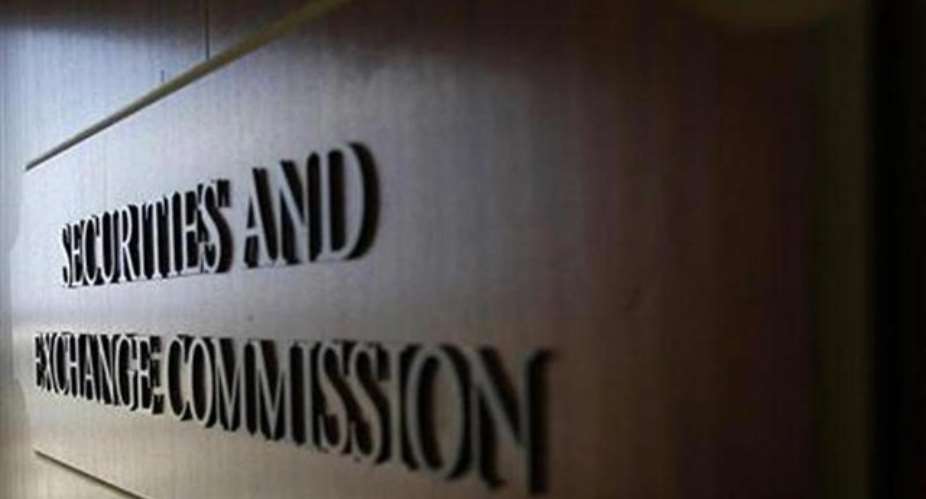Asset management companies have come under pressure as a total of GH¢1.18billion of investors’ monies they have placed with microfinance and saving and loans companies is at risk, since a number of microfinance institutions face insolvency.
According to the 2017 annual report of the Securities and Exchange Commission (SEC), the asset management companies have become badly exposed to the MFIs – some of which have been blacklisted by the central bank.
As at the end of 2017, a total of GH¢183.13million and GH¢997.36million was placed with microfinance and savings and loans financial institutions by asset management firms operating under the SEC’s licence.
This implies that a total of 7.09 percent of total Assets Under Management (AUM) have been placed with microfinance and savings and loans institutions, some of which are trouble and have insolvency issues.
Some of the MFIs are related to the asset management companies, and the Securities and Exchange Commission (SEC) said it will introduce comprehensive guidelines to regulate related party transactions from the first quarter of next year.
These guidelines, which will also ensure strict compliance so as to protect the interests of investors, are coming on the back of increased customer complaints brought to the fore by problems posed by related party transactions within the asset management sector.
“If the trend of related party transactions is left unchecked and unrestrained, we will unwittingly be setting the system up for a major meltdown,” Daniel Ogbarmey Tetteh, Director General of the Commission, said in the report.
“Our surveillance indicates that a few of our licenced asset management firms are directly exposed to some of the microfinance firms that are in trouble and have even been blacklisted by the Bank of Ghana.
“This situation of counter-party default risk has impaired the assets of some investors who have not been able to redeem their investments, leading to several complaints being lodged with the Commission. The incidence of serious liquidity, concentration and counterparty risks serves to undermine the interests of investors,” Rev. Tetteh noted.
Complaints
Due to the increased risk of defaults, the Commission received a total of 223 complaints from aggrieved investors in 2017, the highest since its establishment, as against 55 in 2016.
The total principal amount invested for these complaints was GH¢116.6million, minus accrued interest. “Our response has been to put in place a complaints management procedure and a hearings committee to redress these complaints, in line with provisions in the Securities Act, 929. We intend to use all the powers granted the Commission under Act 929 to sanitise the system and give a boost to investor confidence,” Reverend Tetteh said.
He added that the Commission will put steel in both its on-site and off-site inspection and enforcement mechanisms, coupled with an intensive nationwide investor-education campaign to minimise the emerging risks revealed by these complaints.
“We are also going to closely monitor the earnings, liquidity, solvency as well as exposure positions of market operations with particular emphasis on the funds management industry,” the Director-General added.
Suspension of licences
In the year under review, the Commission suspended the operating licences of six asset management firms: Weston Capital, Canal Capital, EM Capital Partners, Mec Ellis Investments, MET Capital Group, and MAK Asset Management.
Also, another four – Grofin Ghana, Verit Investments, HFC Capital Partners, and Hydefield Capital – requested voluntary cessation of operations.
The Commission said it is currently conducting on-site and off-site assets and liability, client lists, and portfolio evaluations before granting permission.
Industry’s growth
In spite of these challenges, the Funds Management industry has maintained its growth trajectory – driven mainly by pension funds and supported by other corporate actions, collective investment schemes and high-net worth individuals.
Total Assets under Management (AUM) grew by 54.07 percent, from GH¢20.16billion in 2016 to GH¢31.06billion by the end of 2017.
Total AUM of the collective investment schemes developed for retail investors also increased by 11.04 percent within the same period – an indication that the Commission’s financial inclusion strategy for retail investors operating in both the formal and informal sectors of the economy was bearing fruit.





 There’s nothing you can do for us; just give us electricity to save our collapsi...
There’s nothing you can do for us; just give us electricity to save our collapsi...
 Ghanaian media failing in watchdog duties — Sulemana Braimah
Ghanaian media failing in watchdog duties — Sulemana Braimah
 On any scale, Mahama can't match Bawumia — NPP Youth Organiser
On any scale, Mahama can't match Bawumia — NPP Youth Organiser
 Never tag me as an NPP pastor; I'm 'pained' the 'Akyem Mafia' are still in charg...
Never tag me as an NPP pastor; I'm 'pained' the 'Akyem Mafia' are still in charg...
 Your refusal to dedicate a project to Atta Mills means you never loved him — Kok...
Your refusal to dedicate a project to Atta Mills means you never loved him — Kok...
 2024 elections: I'm competent, not just a dreamer; vote for me — Alan
2024 elections: I'm competent, not just a dreamer; vote for me — Alan
 2024 elections: Forget NPP, NDC; I've the Holy Spirit backing me and nothing wil...
2024 elections: Forget NPP, NDC; I've the Holy Spirit backing me and nothing wil...
 2024 elections: We've no trust in judiciary; we'll ensure ballots are well secur...
2024 elections: We've no trust in judiciary; we'll ensure ballots are well secur...
 Performance tracker: Fire MCEs, DCEs who document Mahama's projects; they're not...
Performance tracker: Fire MCEs, DCEs who document Mahama's projects; they're not...
 Train crash: Railway ministry shares footage of incident
Train crash: Railway ministry shares footage of incident
